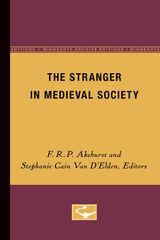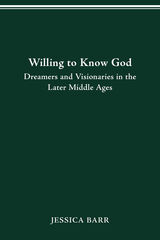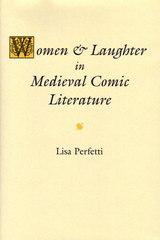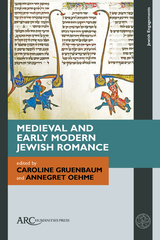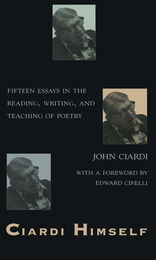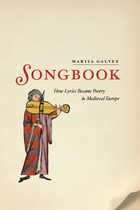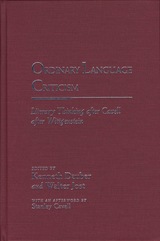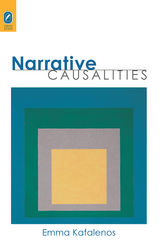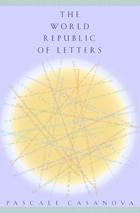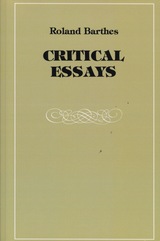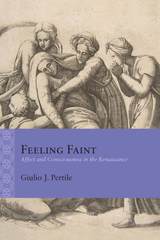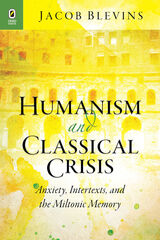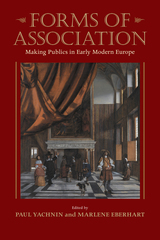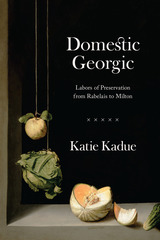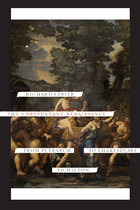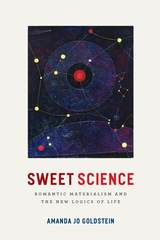This is a marvelous study of the international networks and ethnic forcefields out of which a modern world literature has emerged. In drawing a map of the literary globe, Pascale Casanova shows just how different it is from any political map ever framed. Unlike many previous comparativists, she shows just how many of the texts of literary modernism have been contributed by peoples without financial or political power. This is a brave, audacious and luminous analysis, and a bracing challenge to those who still believe in the nation as an explanatory category. This book will provoke debate for years to come.
-- Declan Kiberd, author of Inventing Ireland and Irish Classics
As a researcher, Pascale Casanova specializes in the exception. Along with a literary knowledge that is exceptional in its breadth and depth, she possesses a theoretical knowledge that is truly vast and wielded with great authority. In pursuing this immense topic - the universe of relations that constitute the "World Republic of Letters" - she has set herself a daunting challenge: that of constructing, and empirically verifying, a theoretical model for the "fabric of the universal."
-- Pierre Bourdieu, author of Distinction and Language and Symbolic Power
The book is remarkable for its multidisciplinary and transnational approach, and for the response it has excited in Japan as well as many other countries, where it will surely continue to inspire lively debate.
-- Hidehiro Tachibana, Waseda University (Tokyo, Japan)
Casanova's book is a major contribution to modern literary theory. It effectively shatters national boundaries.
-- Gilles Lapouge, O Estado de São Paolo (Brazil)
Corpus literarium universalis… What is interesting is that Casanova reads a series of concrete events in the history of the "republic," showing the need… for constant interpellation of aesthetic and linguistic notions.
-- Patricia de Souza, El País (Madrid, Spain)
The great majority of writers in a language outside the Atlantic core who have gained an international reputation have done so by introductory passage through the medium of French, not English: from Borges, Mishima and Gombrowicz, to Carpentier, Mahfouz, Krleza or Cortazar, up to Gao Xinjiang, the recent Chinese Nobel Prize-winner. The system of relations that has produced this pattern of Parisian consecration is the object of Pascale Casanova's [The World Republic of Letters], [an] outstanding example of an imaginative synthesis with strong critical intent...Here the national bounds of Bourdieu's work have been decisively broken, in a project that uses his concepts of symbolic capital and the cultural field to construct a model of the global inequalities of power between different national literatures, and the gamut of strategies that writers in languages at the periphery of the system of legitimation have used to try to win a place at the centre. Nothing like this has been attempted before. The geographical range of Casanova's materials, from Madagascar to Romania, Brazil to Switzerland, Croatia to Algeria; the clarity and trenchancy of the map of unequal relations she offers; and, not least, the generosity with which the dilemmas and ruses of the disadvantaged are explored, make her book kindred to the French élan behind the World Social Forum. It might be called a literary Porto Alegre. That implies a beginning, with much fierce argument and discussion to come. But whatever the outcome of ensuing criticisms or objections, The World Republic of Letters--empire more than a republic, as Casanova shows--is likely to have the same sort of liberating impact at large as Said's Orientalism, with which it stands comparison.
-- Perry Anderson London Review of Books
[A] brilliant, groundbreaking book...Casanova's work amounts to a radical remapping of global literary space...Casanova parts company with the historicism that has swept literary studies over the past two decades. Rather than tying literary phenomena to underlying social and political developments, she charts an autonomous history for literature itself. The world republic of letters is governed by its own rules, keeps time by its own historical clock, partitions the world according to its own map and features its own economics, its own inequalities and its own forms of violence...Casanova devotes the second half of her book to exploring the means by which writers from the literary periphery have sought to break into the center--a myriad of struggles whose existence has heretofore been concealed by 'the fable of an enchanted world...where universality reigns through liberty and equality.' The breadth of her scholarship here is staggering: from South America to North Africa, Eastern Europe to East Asia; from the emergent Modernism of Ibsen and Yeats to the most recent postcolonial hybridities; from 'assimilationists' like Naipul and Cioran to 'rebels' like Neruda and Achebe...She has created a map of global literary power relations where none had existed, and she has raised a host of further questions.
-- William Deresiewicz The Nation
There is a great deal more to this path-breaking study, not least a superb sketch of Franz Kafka, who is depicted caught between Yiddish, Czech and German, high modernism and popular nationalism. There are portraits of exiles or 'translated men' such as Joyce and Samuel Beckett who are adrift between cultures, adept at being homeless in a whole number of languages. And there are snapshots of 'assimilations' such as V S Naipaul, who eagerly identify with the imperial heritage that uprooted their own people. Casanova's range of literary allusions, from Berlin to Havana, Norway to Somalia, is astonishing...This book, which unlike many other works of literary theory is written (or at any rate translated) with exemplary lucidity, represents a milestone in the history of modern literary thought.
-- Terry Eagleton New Statesman
A heroically ambitious new book...aims to put this quest for literary hegemony into a deep historical context. The World Republic of Letters by Pascale Casanova travels far and wide, from French Renaissance disputes over the language of literature to the recent fashion for post-colonial fiction--from Ronsard to Rushdie...Casanova (well-known in France as a critic and broadcaster) follows the battle waged by writers on the margins of the system to carve out a space in which a truly autonomous 'republic of letters' can flourish...Casanova's book is a demanding, rewarding read...She draws a remarkably rich and persuasive map of global writing and publishing not as 'an enchanted world that exists outside time,' but as a battlefield on which dominant languages and cultures have always wielded the heavy weapons.
-- Boyd Tonkin The Independent
Learned and important...It denies the existence of a so-called 'world republic of letters' that is open to all talents and that judges according to universal aesthetic standards...Casanova remaps the fantasy of a homogenized global space into regions of centers and peripheries, rigidly divided into a 'tacit and implacable hierarchy.' Between these regions she identifies only a few gates, guarded by powerful gatekeepers with murky agendas...[She] argues that as concentrations of literary 'capital' are uneven, so are judgments of literary value...The book offers several excellent analyses of 'small national literatures'...This is an original book.
-- K. Tölölyan Choice
Arguing for how the world marketplace of literary value functions--that is, what rules govern the 'game' of style--Casanova offers a start to thinking about how Faulkner got to be 'Faulkner,' Joyce, 'Joyce,' and Naipaul, 'Naipaul' (while any number of dominated worthies struggle angrily on the periphery). Her careful but revealing prose is a model of critical language, and in M. B. DeBevoise's translation from French it attains a martinet's clarity. If you take little from the book--such as an understanding of the freighted relation between intellectual and political power, or the obstinate resiliency of cultural capital--it's still as refreshing a read as a gulp of ice water. Powerfully researched, beautifully learned, and elegantly argued, The World Republic of Letters should be at the top of any syllabus of 'Art, Politics, and Globalism.' Its deep reading of the deep structures of intellectual life is as disconcerting, and productively counterintuitive, as it is smart.
-- Eric Banks Artforum
[A] rather brilliant book...Literature departments are almost always organized by language and country, but Casanova's book gives us many reasons to doubt whether this captures the way literature really works. She has an excellent account, for example, of the international influence of Faulkner--once his novels had been translated into French.
-- Louis Menand New Yorker
First published in 1909, Pascale Casanova's La République mondiale des lettres now appears in English in an intelligent and reliable translation, which carries also a brief but illuminating "Preface to the English-Language Edition" and a much better index than that in the original publication.
-- Peter France Comparative Critical Studies
This book is certain to provoke lively discussion, as any good critical study should. The wide-ranging view Casanova brings to her subject puts her in the companionship of very few literary critics capable of competing with her.
-- Thomas Austenfeld South Atlantic Review
[An] excellent book...Today's international space, as Casanova sees it, is created on the one hand through a rivalry between the growing number of nations eager to establish a literary prestige, promoting their poets and novelists internationally with the help of government institutions: literature here is understood as expressing the genius of a people--one thinks of the magical realist novels from South America, or indeed a book such as Midnight's Children--but its productions are only properly consecrated when translated worldwide, or, paradoxically in the case of Rushdie, when written in English. This literature is not, that is, addressed to the people whose genius it supposedly expresses and celebrates.
-- Tim Parks The Times Literary Supplement

